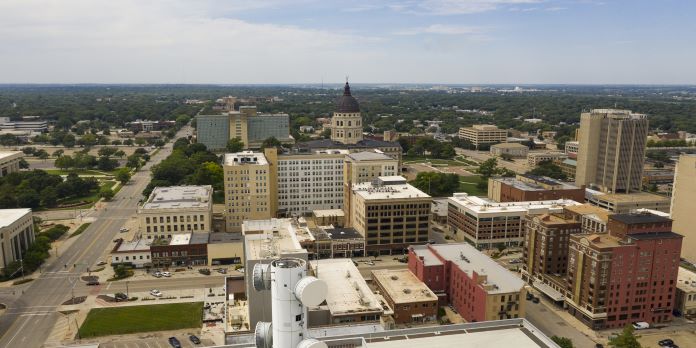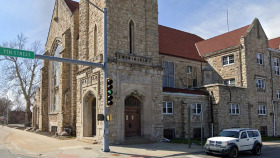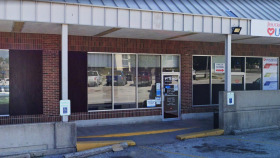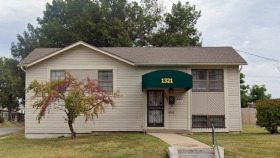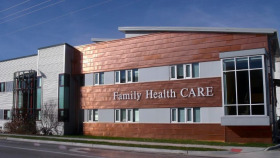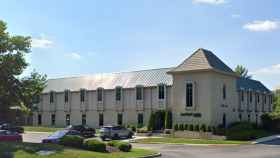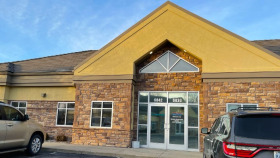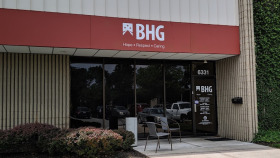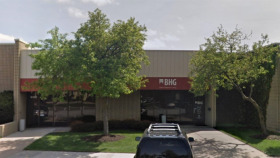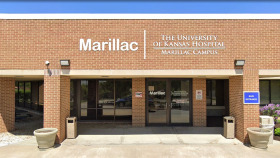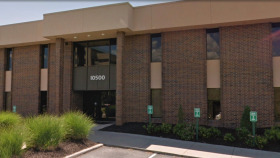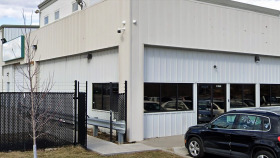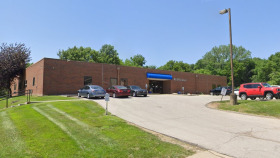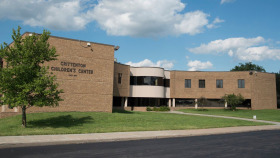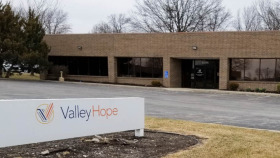Expert Insights
I recently read in the news that in the last few years, Kansas had the second largest percentage increase in drug overdose deaths in the nation. Deaths increased by 43 percent in 2021, killing 680 people. The cause? Fentanyl — just like other major overdose deaths rises across the US which killed a staggering 107,622 people in 2021. What’s problematic about this drug, in my opinion (and the DEAs) is that many people taking illicit substances don’t know their drugs have been spiked with fentanyl. Drug cartels are lacing large quantities of the black-market drug supply with fentanyl to make drugs more potent and because it’s cheaper. I think it’s a tragedy that the government has known about the opioid crisis for years, but what they are doing isn’t working because the death toll keeps rising. Instead, I believe we need more harm reduction approaches like drug testing kits, Narcan, and services to connect people with recovery support. Then we might have a chance at saving some lives!
~ Olivia Pennelle
How Expensive is Drug Rehab in Kansas City?
There is no fixed cost for drug and alcohol rehab centers in Kansas City. Treatment costs are variable and influenced by characteristics of the facility, such as:
Treatment setting (inpatient or outpatient)
Features and amenities (luxury or standard rehab facility)
Duration of program (30, 60, or 90 days)
Health insurance plan
Choosing a rehab facility in-network with health insurance provider
Location (city vs. suburb)
Inpatient/residential drug and rehab facilities tend to cost more than outpatient programs. You can expect to pay more for the room and board at an inpatient program. Similarly, luxury amenities like private chefs, organic meals, spa treatments, and private suites may increase the cost of your care.
You can expect to pay less if you have health insurance. By law, group and individual insurance companies are required to cover substance use disorders to the same extent as medical and surgical conditions.5 You can find a program with coverage from your insurance provider by calling the number on the back of your health insurance card. You can also visit the Addiction Resource website to look for a program that accepts your funding source.
You still have plenty of options even if you have no insurance. State-funded and free programs offer free or low-cost treatment. The sliding scale fee offered by some programs is another payment option to help pay for care.
Are There Low-Cost and Free Drug Rehab Centers in Kansas City?
State-Funded: State-funded rehabs that offer free to low-cost care in Kansas are managed by the Behavioral Health Services Commission. You can expect to receive inpatient and outpatient services, acute detox treatment, crisis intervention, opioid maintenance outpatient treatment, and peer mentoring support.6 The Behavioral Health Services Commission works with 26 community health centers across Kansas. You can seek state-funded services at these community health centers.
Scholarships: Some facilities in Kansas City offer scholarships to assist with funding for treatment. Scholarships cover at least some of the costs of the program. However, you may be required to repay all of the costs if you end rehab prematurely.7 Make sure you find out the terms of the scholarship before you sign up.
Sliding Scale Options: The sliding scale payment plan offered by some facilities is a great choice if you have no insurance and don’t qualify for free or low-cost state-funded options. You’ll receive discounts based on your ability to pay. A sliding scale program typically uses your income to determine your ability to pay and the discount.9 You can contact the facility directly to obtain more information about their eligibility criteria. Visit the Addiction Resource website to find Kansas City drug rehabs with sliding-scale payment options.
Free With Insurance: Rehab may be free for you with your insurance because of federal and Kansas state laws. The ACA and Mental Health Parity and Addiction Equity Act (MHPAEA) require individual and group insurance companies to cover care to the same extent as surgical or medical conditions.8 However, the extent of insurance coverage will depend on the type of your program and your insurance plan.
Medicare or Medicaid: Both government healthcare programs cover specific drug and alcohol services, but you will need to find a treatment center accepting these insurance options.
How Does Kansas City Compare in Alcohol and Drug Use?
With a population of nearly 160,000, Kansas City sits on the eastern edge of Kansas, at the border with Missouri.1 It’s home to the Kansas Speedway, which hosts NASCAR races and has a casino. However, it’s also home to a growing drug epidemic. Methamphetamine was listed as the region’s greatest drug threat in 2021, with heroin and synthetic opioids ranking as the second greatest threat.2 If you are struggling with addiction, there are over 70 accredited alcohol and drug rehab centers in Kansas City that can help get you on the path to recovery.3
Like many major cities with myriad drug and alcohol rehabilitation levels of care available, Kansas City is located in the heart of the United States, with a population estimated close to 155,000 in 2021. Kansas City is ethnically diverse, with nearly 32% identifying as Hispanic or Latino, about 22% as Black or African American, close to 54% as White, and about 5% as Asian. Most of the residents are between 19 and 64 years of age; however, nearly 28% are less than 18 years and about 12% are older than 65 years.1
Kansas City is located in the northeast region of Kansas. Drug and alcohol usage in northeast Kansas among people older than 12 years from 2018 to 2020 is as follows:2

Almost 11% used illicit drugs in the past month

About 16% used marijuana in the past year
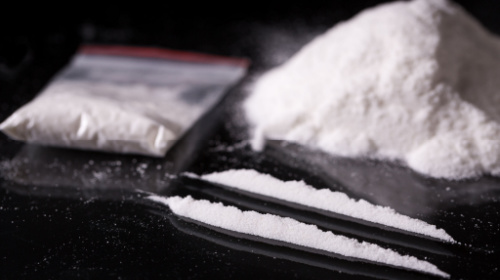
About 2% used cocaine in the past year

Close to 56% used alcohol in the past month
- Less than 1% used heroin in the past year
- Nearly 1% used methamphetamine in the past year
- About 4% misused prescription pain relievers in the past year
- About 28% reported binge alcohol use in the past month
Drug Overdoses
Kansas City is located in Wyandotte County in the northeast corner of Kansas. Statistics for 2011-2020 from the Kansas Department of Health and Environment for Wyandotte County are as follows:3
- 191 residents died from a drug overdose
- 72 residents died from opioid overdose
- 20 residents died from a cocaine overdose
- 11 residents died from a heroin overdose
- 10 residents died from a benzodiazepine overdose
- 44 residents died from a psychostimulant overdose
Treatment Admissions
There are numerous quality drug and alcohol rehab facilities that admit residents in Kansas City who experience substance use disorder. Statistics from 2019 shown below reflect substance-use hospital admissions in Kansas for residents 12 years and older:4
- About 10,000 were admitted for substance use disorder
- Close to 1,700 were admitted for primary alcohol use
- About 250 were admitted for heroin use
- Almost 1,800 were admitted for marijuana/hashish use
- About 4,000 were admitted for methamphetamine use
- Nearly 250 were admitted for cocaine use (smoking)
Alcohol and Drug Laws in Kansas
Naloxone (Narcan) Dispensing: Naloxone (Narcan) dispensing laws in Kansas improve access to naloxone and prevent poor outcomes from an overdose. Pharmacists are allowed to dispense naloxone to most people, including bystanders, patients, law enforcement officers, school nurses, and patients. You may obtain naloxone from a pharmacist in Kansas for yourself or a loved one to treat an overdose.15
Drug Court: Kansas has several drug courts for individuals with substance use disorders. Drug courts oversee people with substance use disorder and allow them to complete rehabilitation instead of going to jail. The supervision and structure of the drug court can help you avoid a relapse.16
Choosing the Right Level of Care
Inpatient
Inpatient is also sometimes referred to as residential care. In one of these programs, you spend both your days and nights living within a facility as you go through care. This kind of treatment offers you the opportunity to focus completely on your recovery with round-the-clock care and support from professionals and your peers who go through rehab with you. Inpatient programs also allow for a medical detox, which helps keeps you safe and comfortable during withdrawal.
Outpatient
Outpatient offers high-quality treatment while allowing you to live in your own home and go to work or school. This type of rehab offers different levels of care, such as partial hospitalization programs (PHPs), intensive outpatient programs (IOPs), standard outpatient, and aftercare. Outpatient is mainly therapy focused and often best for you if you have mild addiction. It also offers both peer support groups and individual therapies based on your needs.
Finding Specialized Drug Rehabs in Kansas City
LGBTQ+
Rehabs that specialize in treating members of the LGBTQ+ community provide a safe space for patients to recover from drug and alcohol addiction. Providers also understand challenges unique to this community, such as internalized homophobia and transphobia, family rejection, social exclusion, and discrimination.
Faith-Based
Faith-based programs offer a spiritual approach to addiction recovery, integrating prayer groups and literature studies into treatment plans. If your religion is important to you, you may want to consider finding a spiritual rehab.
Men-Only
Men-only programs exclusively treat men who are recovering from addiction. Men are often stigmatized or judged for being “weak” for seeking treatment, and men-only treatment programs understand these challenges and can cater treatment specifically for their needs.
Women-Only
Women-only programs specialize in treating women and provide a safe space for women to process and recover, especially for those who may have experienced sexual assault or abuse from a male partner or loved one.
Luxury
Luxury rehabs and detox centers in Kansas City provide patients with a relaxing resort-like environment to jumpstart their addiction recovery. Every luxury treatment program is different but they typically provide upscale features, such as swimming pools, massage therapy, spa treatment, equine therapy, gourmet meals, and more.
Executive
Executive centers specialize in treating working professionals who need to continue working while recovering from drug or alcohol addiction. They typically combine the upscale features and setting of a luxury rehab with practical amenities, such as high-speed internet, private workrooms, and more.
How to Choose the Right Kansas City Drug Rehab?
Choosing a drug or alcohol rehab in Kansas City is much easier than you think. You may want to consider factors like cost, location, treatment type, treatment philosophy, program rules, and amenities to help identify a program that meets your lifestyle, beliefs, budget, and level of care you need.
- Your budget and source of funding may be critical in choosing a facility. You may review the accepted funding types to determine if you need to make any out-of-pocket payments. Typically, a long-term stay at the facility may cost more than a short-term stay.
- You may review the neighborhood characteristics to help you choose a rehab. Do you want to live in an urban area with plenty of shopping and restaurants, or do you prefer to live close to trails, parks, and lakes? Your recreational preferences may help you decide on a location.
- You can use your personal philosophy or beliefs to help choose a suitable facility. If you are a Christian or are religious and prefer support from people with similar beliefs, you may select a Christian/faith-based program. You may also find a program with a similar philosophy to yours, such as a holistic program.
- Amenities in rehab may be the most important factor for you. If you prefer a facility with luxurious offerings like a spa, private suite, organic meals, scenic views, and concierge services, you may choose a luxury center instead of the standard ones.
- Program rules may be an important consideration based on your lifestyle, relationships, and preferences. For example, if you want support from friends and family during care, you may want to choose a facility with flexible visitation rules.
Should You Travel for Drug and Alcohol Rehab in Kansas City?

You may find some of the best drug rehabs in Kansas City. Your decision to travel to Kansas City for care may depend on personal factors like your preferences, family ties, lifestyle, and funding source. Reasons for considering Kansas City include the following:
- You want a facility close to your friends and family in Kansas City.
- You can find an appropriate treatment type in Kansas City.
- You prefer to move away from your current location for rehab.
- You want to live along the Missouri river.
- Your rehab will be covered in Kansas City.
Downtown is an eclectic neighborhood in Kansas City with numerous restaurants, cultural centers, and historical sites. The Downtown neighborhood is famous for the “Avenue of Murals” with historical artwork and Wyandot National Burying Ground.10 Downtown is a great location if you are a foodie and want to explore the culinary scene of Kansas City during your rehab.
Northeast is a residential neighborhood in Kansas City with many historic sites. The Underground Railroad Museum and the Fairfax District—the site for the construction of World War II’s B-25 bombers—are located in the Northeast.10 You may consider a facility in the Northeast if you want insight into the rich history of Kansas City during your care.
Midtown is a great neighborhood if you want to experience Downtown in calmer surroundings from urban life. You’ll be close to the Wyandotte County Lake and Park, trails, and an archery range if you choose a rehab in Midtown.10 Midtown is a great neighborhood if you are an outdoor enthusiast.
Resources
- Kansas City, Kansas Population 2022. (n.d.). Worldpopulationreview.com.
- Operation Engage Kansas City. (n.d.). Www.dea.gov.
- FindTreatment.gov. (n.d.). FindTreatment.gov.
- United States Census Bureau. (n.d.). Quick Facts: Kansas City City Kansas
- Substance Abuse and Mental Health Services Administration. (n.d.). 2018-2020 NSDUH Substate Region Estimates – Tables.
- Kansas Department of Health and Environment. (n.d.). Overdose Mortality Dashboard
- Substance Abuse and Mental Health Services Administration. (2021). Treatment Episode Data Set (TEDS): 2019. Admissions to and Discharges From Publicly Funded Substance Use Treatment.
- U.S. Department of Health & Human Services. (2021, December 1). Mental Health and Substance Use Insurance Help.
- Kansas Department for Aging and Disability Services. (n.d.). Substance Use Treatment Services.
- Substance Abuse and Mental Health Services Administration. (2019). Paying for Treatment.
- Centers for Medicare& Medicaid Services. (n.d.). The Mental Health parity and Addiction Equity Act (MHPAEA).
- Health Resources & Services Administration. (2018). Chapter 9: Sliding Fee Discount Program.
- Visit Kansas City, Kansas. (2022). Neighborhoods.
- US Department of Health and Human Services. (2016). Facing addiction in America: The Surgeon General’s Report on Alcohol, Drugs, and Health [Internet]. Substance Abuse and Mental Health Services Administration (US).
- Substance Abuse and Health Services Administration. (2022, April 21). Co-Occurring Disorders and Other Health Conditions.
- Grim, B. J., & Grim, M. E. (2019). Belief, Behavior, and Belonging: How Faith is Indispensable in Preventing and Recovering from Substance Abuse. Journal of Religion and Health, 58(5), 1713-1750.
- Substance Abuse and Health Services Administration. (2022). Recovery and Recovery Support.
- Kansas Board of Pharmacy. (2022). Naloxone Dispensing in Kansas.
- Kansas Judicial Branch. (2019). Drug Courts in Kansas.

